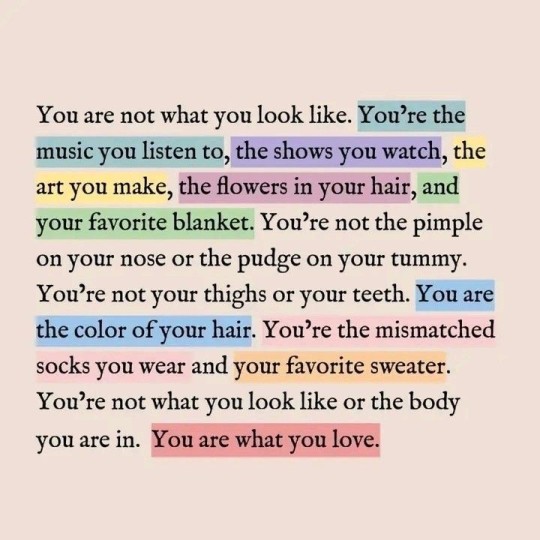Text
reblog if you wear glasses. too many mutuals don't know they have glasses wearers in their midsts
207K notes
·
View notes
Text
one day you think: I want to die. and then you think, very quietly: actually. actually. I think I want a coffee. a nap. a sandwich. a book. and I want to die turns day by day into want to go home, I want to walk in the woods, I want to see my friend, I want to sit in the sun, I want a cleaner kitchen, I want a better job, I want to live somewhere else. I want to live.
- via duckbunny
61K notes
·
View notes
Text
For all of you who’ve been told that you are a failure – or that you will end up a failure, I need you to know that such a thing doesn’t exist. There is no person anywhere who is a failure. There are people failed by the system, people who are failed by their families, by their jobs, bosses, the economy, the law, the government, the rich, the oppression, by their own lack of empathy. But nobody is a failure.
Not doing well at any area in life does not make person a failure. People who don’t have a career are not failures, people who don’t have jobs aren’t failures. People who struggle with addiction or homelessness are not failures. People who fall thru the cracks of social systems aren’t failures either. Not finding love doesn’t equal a failure. Human beings don’t fail. We’re not meant to follow a structure of life that demands us to constantly struggle against a system that is set so that only a certain percentage could enjoy privileges, while the rest is told we’re not good enough.
We’re born to be a part of the world, to share the sun and the rain together, to form a community and live more easily relying on each other, we’re meant to enjoy affection and acceptance throughout our entire lives, to experience joy and sorrow with support of others, to fill each other’s time with conversation and laughter. A person not having these things in life doesn’t equal a failure, it’s a person who’s been denied their birthright. It’s a person who is forced to miss out and to struggle, because if they were able to enjoy what is natural to them, they would not be in so much anxiety or pain.
No matter what mistakes you make, or what roads you take, you will never be a failure. Nobody is supposed to fight their entire life alone in order to keep the fear of failure away. It’s not a real threat. You cannot fail, as long as you breathe, you’re valuable and welcome part of the world.
655 notes
·
View notes
Text
POV: You're a student preparing for journalism entrance exam and you're high on caffeine, newspapers and texts.
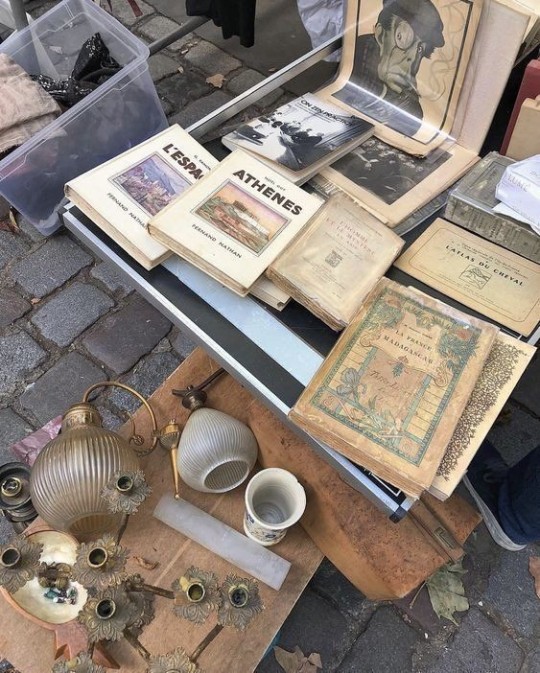





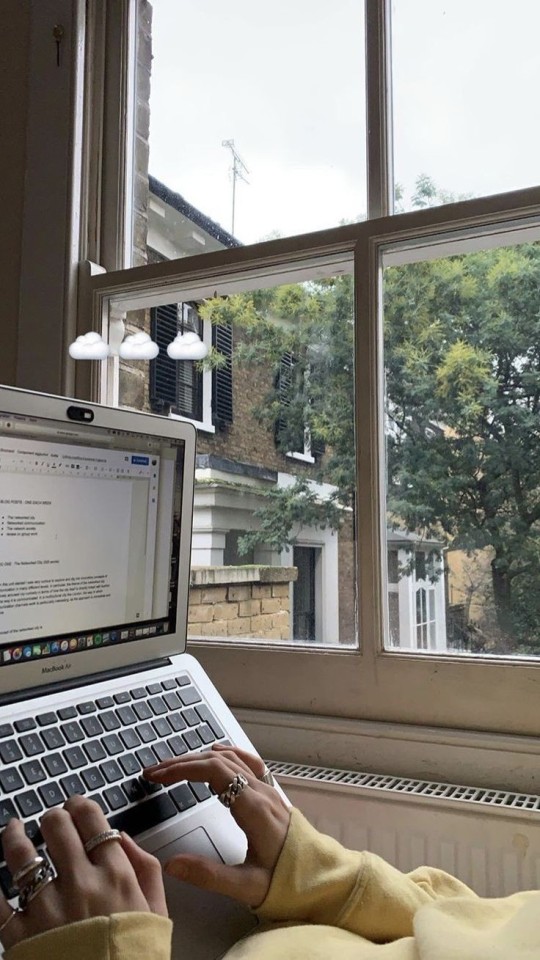

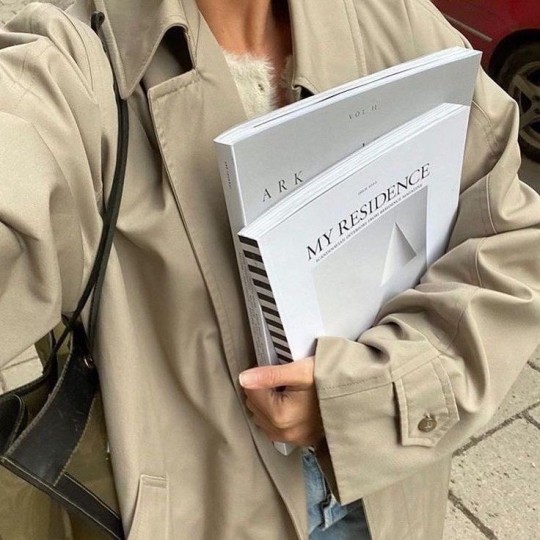
670 notes
·
View notes
Text
Learning a language = learning a culture
To truly understand a language and the people speaking that language, you also have to make a conscious effort to learn about the culture and history of these people. I know that the cultures of the countries where a language is spoken can be very different (e.g. Mexico vs. Spain, France vs. all African states where French is spoken, and even England vs. Ireland vs. Australia), so these suggestions work best if you have a specific target country in mind.
Here are some ideas on where to start:
look at the political system of your target country/culture: how does it work? Who are the most important people right now? Is there a monarchy?
look at the (broad) history of your target country/culture: since when is it an official country? Has it been in any wars? If so, with who and why? Was this country ever colonised or a coloniser?
research the most popular TV shows from the last 20 - 30 years and watch some of them
find out the most popular sport of this target country/culture and the culture surrounding it
research the holidays and how they are celebrated and whether there are any special holidays & what they mean to your target country/culture
watch some movies and TV shows that were made in your target country/culture, so you can get insights into the everyday lives of these people and how they interact
watch/read some news of your target country to find out what’s happening there right now & what the most important topics are for them
research how the school & education system works
research how the healthcare system works
research the typical cuisine of your target country/culture
find out whether there is some kind of traditional wear, its history, and what it means to the people
find out whether there are any indigenous people living in your target country, what their history is, and how they are perceived/treated in the country’s society nowadays
are there any stereotypes about this country/culture? Research whether or not they are true and why they exist in the first place
find out whether there is some kind of traditional folk music. Listen to it and find out its history and what it means to your target country/culture
what are the main religions of your target country/culture and how incorporated are their practices in society?
are there any social divides in your target country/culture? If so, what are they based on?
how is your target country’s relationship to its neighbouring countries?
.
If you have any other ideas or suggestions, feel free to comment or reblog!
.
2K notes
·
View notes
Text


pov: you are the main character running a cute cafe in paris, and you spend your evenings reading to your pet bird.
10K notes
·
View notes
Text
Arabic is one of the most romantic languages. It has at least 11 words for love and each of them conveys a different stage in the process of falling in love……


Eayni (عيني)
Meaning my eyes. Eyes are considered to be a treasure in the Arab world. So, calling someone eayni means you’ll treasure them forever.

Ma Atyaback or Ma Atyabeck (ما أطيبَك /ما أطيبِك)
This is the equal to saying “How cute are you?” in English. It’s used much the same way: when somebody does something that you find cute, you’d say ma atyaback or ma atyabeck.







612 notes
·
View notes
Text
I hope my mom heals from the things she doesn’t talk about
50K notes
·
View notes
Text
every morning i wake up and make the worst possible time management decisions anyone has ever made
203K notes
·
View notes
Text
february the first? more like february the cursed.
#extreme cold warning#issued today#it’s gonna be -30 degrees#i’m gonna cry#new semester starts tomorrow#send help
0 notes
Text
you can stand inside of a song and walk around in it if you’d like
21K notes
·
View notes
Text
your girlfriend told me that she thinks my takes are way more nuanced than yours. yeah she thinks you can’t get past surface level interpretations and she’s leaving you for my analysis. sorry
53K notes
·
View notes
Text
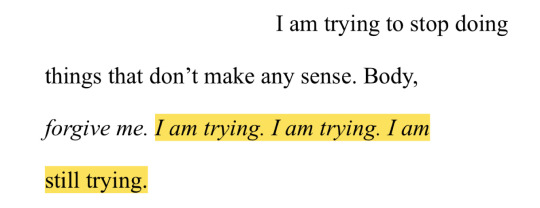
Blythe Baird, from If My Body Could Speak; “Eat”
[Text ID: “I am trying to stop doing / things that don’t make any sense. Body, / forgive me. I am trying. I am trying. I am still trying.]
52K notes
·
View notes
Text
10 books to read if you loved Babel: An Arcane History by R.F. Kuang
Disorientation by Elaine Hsieh Chou
The Secret History by Donna Tartt
Translating Myself and Others by Jhumpa Lahiri
Chums: How a Tiny Caste of Oxford Tories Took Over the UK by Simon Kuper
The Atlas Six by Olivie Blake
The It Girl by Ruth Ware
They Said They Wanted Revolution: A Memoir of My Parents by Neda Toloui-Semnani
Portrait of a Thief by Grace D. Li
The Dictionary of Lost Words by Pip Williams
Against White Feminism: Notes on Disruption by Rafia Zakaria
855 notes
·
View notes
Text
“That year, using English as an example, they began the task of studying how languages grew, changed, morphed, multiplied, diverged, and converged. They studied sound changes; why the English knee had a silent k that was pronounced in the German counterpart; why the stop consonants of Latin, Greek, and Sanskrit had such a regular correspondence with consonants in Germanic languages. They read Bopp, Grimm, and Rask in translation; they read the Etymologiae of Isidorus. They studied semantic shifts, syntactical change, dialectical divergence, and borrowing, as well as the reconstructive methods one might use to piece together the relationships between languages that at first glance seemed to have nothing to do with each other. They dug through languages like they were mines, searching for valuable veins of common heritage and distorted meaning.
It changed the way they spoke. Constantly they trailed off in the middle of sentences. They could not utter even common phrases and aphorisms without pausing to wonder where those words came from. Such interrogations infiltrated all their conversations, became the default way they made sense of each other and everything else. They could no longer look at the world and not see stories, histories, layered everywhere like centuries’ worth of sediment.
And the influences on English were so much deeper and more diverse than they thought. Chit came from the Marathi chitti, meaning ‘letter’ or ‘note’. Coffee had made its way into English by way of Dutch (koffie), Turkish (kahveh), and originally Arabic (qahwah). Tabby cats were named after a striped silk that was in turn named for its place of origin: a quarter of Baghdad named al-‘Attābiyya. Even basic words for clothes all came from somewhere. Damask came from cloth made in Damascus; gingham came from the Malay word genggang, meaning ‘striped’; calico referred to Calicut in Kerala, and taffeta, Ramy told them, had its roots in the Persian word tafte, meaning ‘a shiny cloth’. But not all English words had their roots in such far-flung or noble origins. The curious thing about etymology, they soon learned, was that anything could influence a language, from the consumption habits of the rich and worldly to the so-called vulgar utterances of the poor and wretched. The lowly cants, the supposed secret languages of thieves, vagabonds, and foreigners, had contributed such common words such as bilk, booty, and bauble.
English did not just borrow words from other languages; it was stuffed to the brim with foreign influences, a Frankenstein vernacular. And Robin found it incredible, how this country, whose citizens prided themselves so much on being better than the rest of the world, could not make it through an afternoon tea without borrowed goods.”
— RF Kuang, Babel
2K notes
·
View notes
Text
zlibrary gone... FUCK TIKTOK FUCK BOOKTOK I hope that app burns in hell
108K notes
·
View notes
